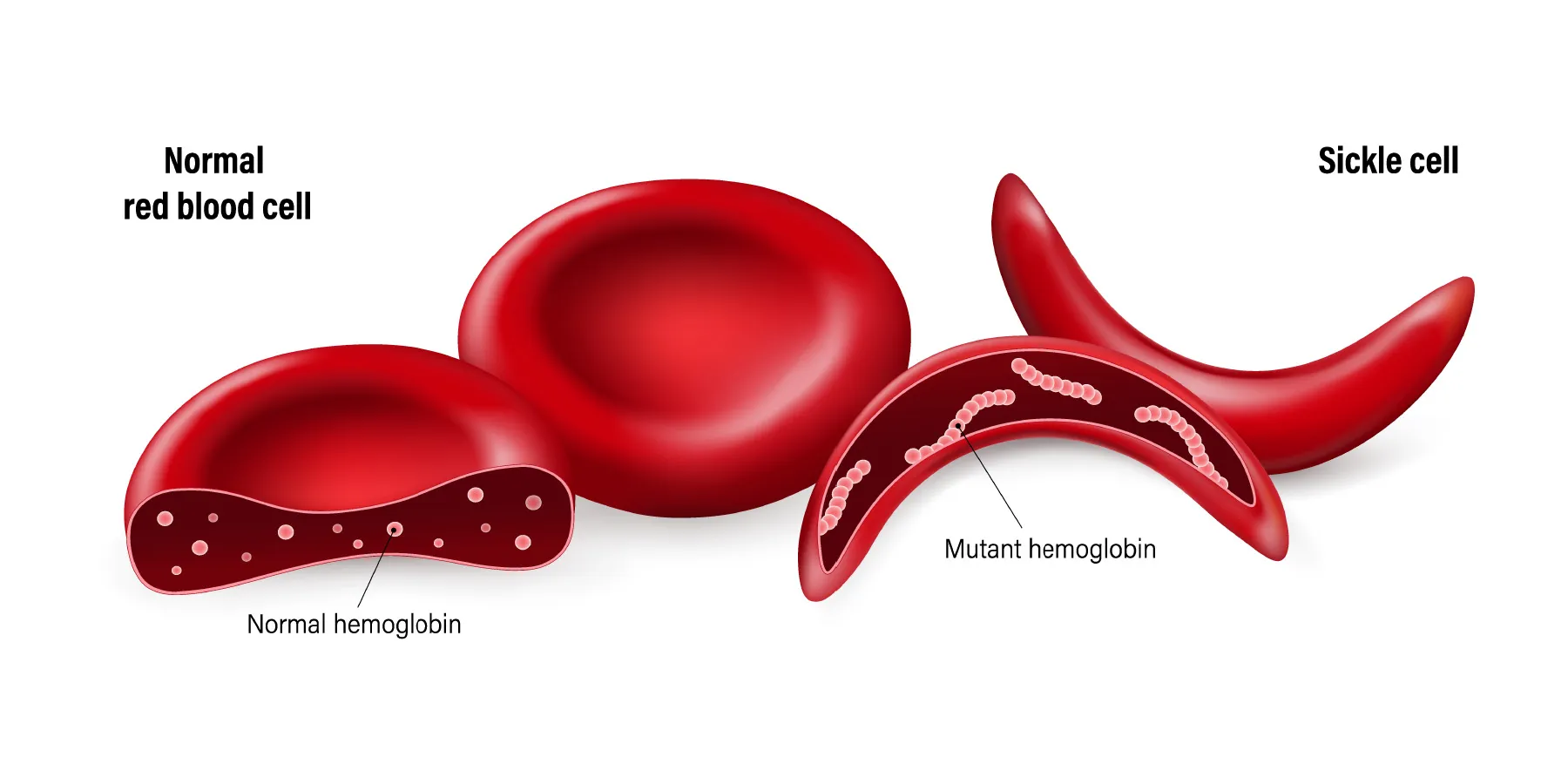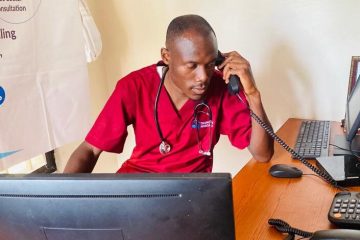Sickle cell disease (SCD) is a significant genetic health problem in Africa, affecting many children and adults.
It is a group of blood disorders typically inherited from a person’s parents. The most common type is known as sickle cell anemia (SCA), causing a shortage of red blood cells.
These cells take on a rigid, sickle-like shape instead of the typical flexible, disc shape. This change can result in various complications, including episodes of pain, anemia, bacterial infections, and stroke.
In Africa,
it is estimated that SCD affects 70,000-100,000 newborns each year, making it a significant public health concern.
Despite its prevalence, there is a lack of awareness and comprehensive healthcare programs for SCD in many African countries.
It’s crucial to increase education about the disease, improve diagnostic tools, and develop better treatments to save the next generation of Africans from this debilitating disease.
Sickle Cell Disease in Africa and Uganda

Symptoms
Sickle cell disease can lead to a variety of symptoms and complications, including:
- Pain episodes: The misshapen cells can block blood flow, causing sudden attacks of pain.
- Anemia: Sickle cells are prone to breaking apart, causing a shortage of red blood cells and leading to fatigue.
- Swelling: The disease can cause swelling in the hands and feet.
- Frequent infections: Sickle cell disease can make individuals more susceptible to infections.
Causes
Sickle cell disease is caused by a mutation in the gene that tells your body to make hemoglobin — the iron-rich compound that gives blood its red color.
Prevention and Management
While the disease can’t be prevented as it’s inherited, the symptoms and complications can be managed:
- Regular Check-ups: Regular health check-ups can help manage the symptoms and prevent complications.
- Healthy Lifestyle: Maintaining a healthy lifestyle, including a balanced diet and regular exercise, can help manage the condition.
- Hydration: Staying well-hydrated can help prevent sickle cell crises.
- Education: Increasing awareness and understanding of the disease can help manage its impacts.
In Africa, and especially Uganda, there is a pressing need for comprehensive healthcare programs focusing on SCD. Uganda Sickle Cell Rescue Foundation is one of the organizations working towards this goal. They aim to spread awareness, improve diagnostic tools, and develop better treatments to combat this debilitating disease.
Save the Next African Generation
Let’s save our very own, Here are a few strategies that could significantly help in saving the next African generation from Sickle Cell Disease, both in Africa generally and Uganda specifically:
- Public Awareness: It’s vital to increase public awareness about SCD. This can be achieved through public health campaigns, educational programs in schools, and community workshops. Public awareness can lead to early diagnosis and better management of the disease.
- Screening Programs: Implementing newborn screening programs can help in early detection of the disease. This can lead to timely intervention and better management of the disease from an early age. The Sickle Cell Disease Association of America provides resources on the importance of newborn screening.
Healthcare Access: Improving access to healthcare facilities and services is critical. This includes making treatments, medications, and routine check-ups accessible and affordable for those living with SCD.
- Research: It’s important to invest in research for finding better treatments and potentially a cure for SCD. Organizations like The Sickle Cell Society are doing significant work in this area.
- Government Policies: Governments need to prioritize SCD as a public health issue and allocate sufficient resources towards combating it. This could include funding for research, healthcare services, and public awareness campaigns.
Partnerships: Forming partnerships with international health organizations can help in sharing resources, knowledge, and strategies to combat SCD. For instance, The World Sickle Cell Day is an initiative that brings together various organizations worldwide to fight SCD.
Teamwork Homecare has Specialized Doctors that can help you with Screening to help in early detection of the disease. This can lead to timely intervention and better management of the disease from an early age.
Contact us today for help,
Airtel: 0200-909453
MTN: 039-256331
We are located at Naalya Estates, Golden Apartments
Or email us
Or visit our website
In addition , organizations like the Uganda Sickle Cell Rescue Foundation are doing commendable work in spreading awareness and improving diagnostic tools. Supporting such organizations can significantly help in combating SCD in Uganda.



